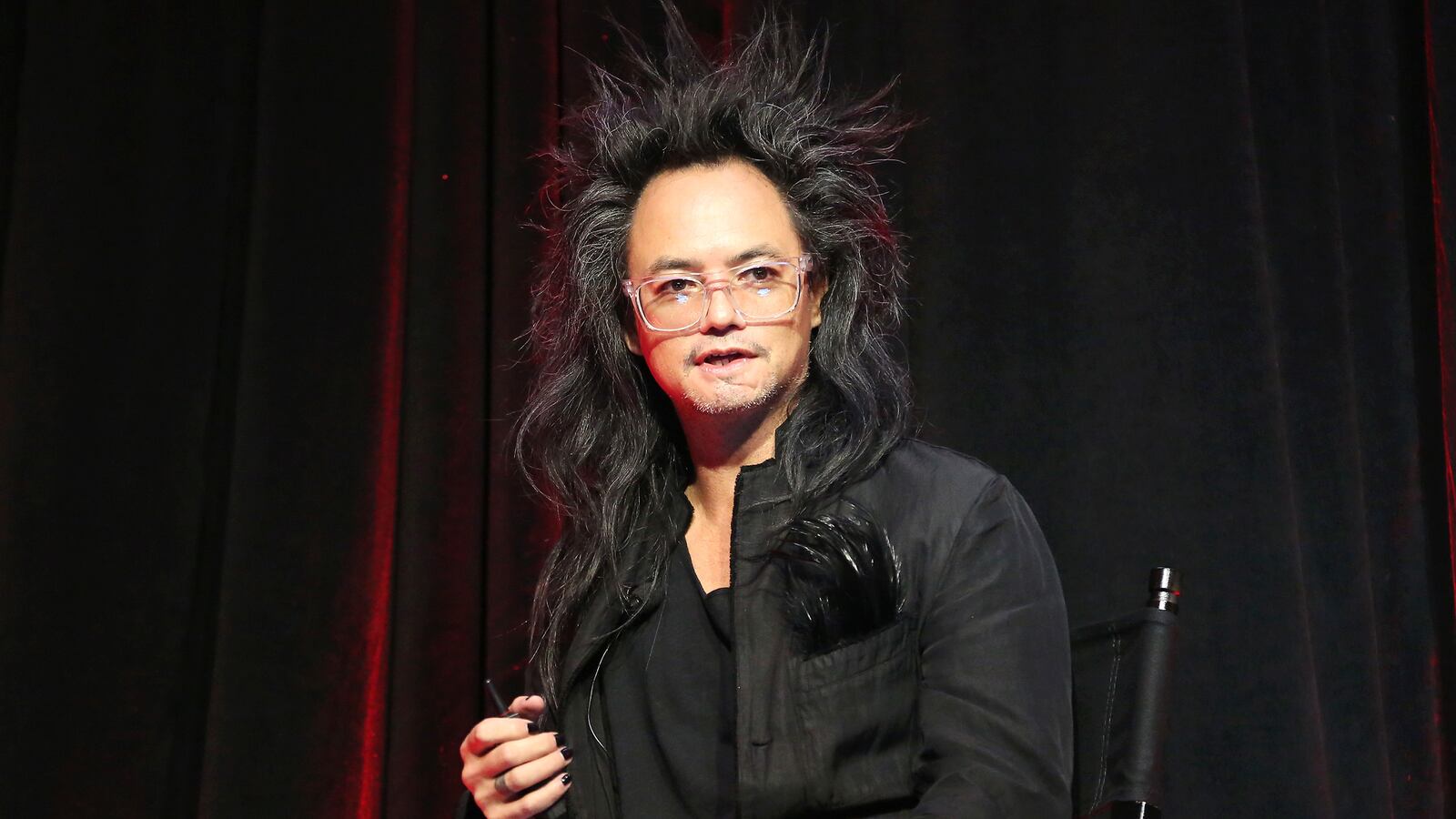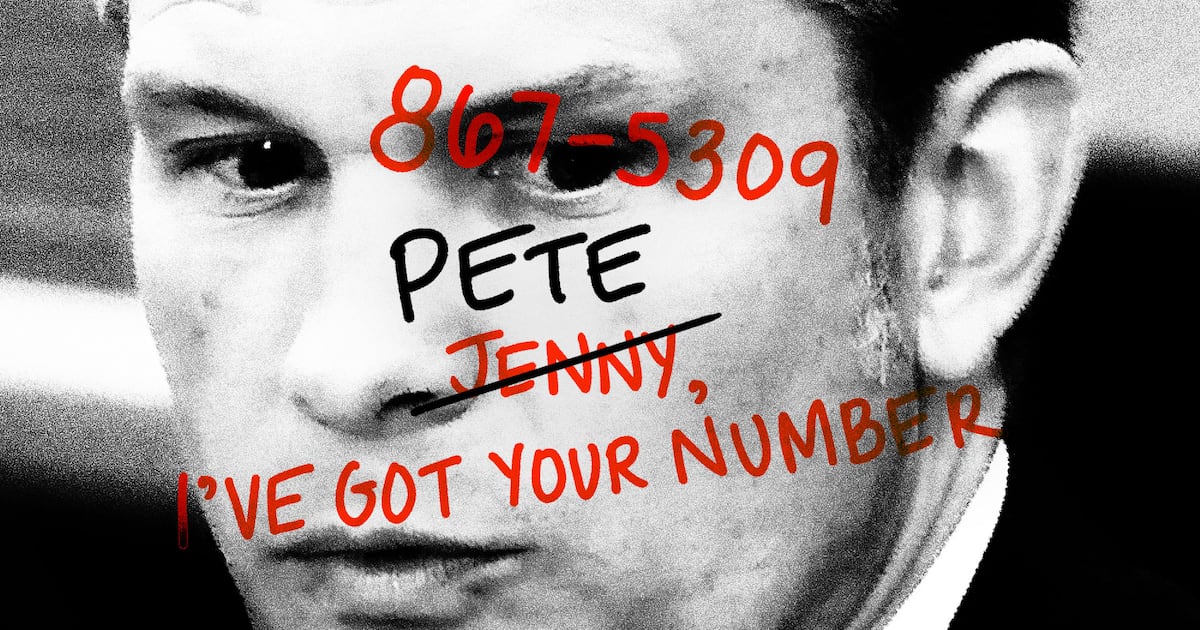AOL, that relic of a bygone age, has in its employ a person, Shingy, whose job title is as future-winning as it gets: “Digital Prophet.” The existence of Shingy—“real” name David Shing—has been an open secret in tech circles for ages, much like the shimmering waterfall of sense, nonsense, and quasi-sense that tumbles endlessly out of his Aussie-accented mouth.
If you are not up on Shingy, or why he must be discussed, picture Russell Brand playing Jareth the Goblin King, only instead of lording over goblins, he’s thinkfluencing Human Resources managers with an authoritative degree of ethnic ambiguity. Perhaps lording over goblins is the right description after all.
At any rate, there are important reasons for the comparison to the author of Revolution and to Bowie’s Labyrinth villain, which we’ll get to in a moment. For now, be aware that Shingy’s mere existence has finally touched off a spasm of annoyance and resentment that’s tingled the interwebs in a way all too revealing about the rest of us, who are even more clueless than His Shingness.
Our ignorant public reckoning with the horrific implications of Shingy began when Andrew Marantz profiled him briefly at The New Yorker. In a vignette seemingly produced by a genius algorithm constructed to maximize social media hatefucking, Shingy drops in on AOL Advertising’s chief marketing officer (yes: advertisements must be marketed) bearing his latest, greatest mindquake—sorry, “brain fart,” as he puts it. There, on his iPad Mini, is a hand-drawn cartoon of a bear, dressed, by strange coincidence, in the sort of thing Shingy has integrated into his own personal brand: “zebra-print pants and a shirt covered in ones and zeros.”
In an exchange reminiscent of Glamorama, Bret Easton Ellis’s turn of the century models-turned-terrorists novel—minus, that is, the jokes—the marketing officer raves. “Love it, love it, love it,” she intones, adding, “I’m thinking of the bears [sic] more as a metaphor.”
“A thousand per cent,” Shingy replies, maybe disclosing the conceptual vision that has made him tech’s most valuable combination guru and bag man.
For some nerd-industry journalists, this is more than they can bear. Certain business-watchers paid to care about the plutocracy’s mind-numbing antics are beside themselves that a person like Shingy can be so lavished with money and status to do apparently nothing but troll them. At the Washington Post’s Wonkblog, Matt O’Brien railed that Shingy “is everything wrong with corporate America today.”
No fool, O’Brien sized up Shingy’s oracular pronunciations as “gibberish” typical of “most business jargon.” (In Glamorama, Ellis offered up into our lexicon the phrase “hodgepodge of banality.”) It was “Corporate America’s emperor-has-no-clothes moment,” said O’Brien, with the Shingerino himself “the one holding court.”
Easy and paradoxically comforting as this harsh condemnation may be—those elites, they’re just morons, I tell ya!—O’Brien and his emotional compatriots could benefit from a little of Shingy’s be-your-own-ideas-festival pixie dust. The rubes and peons of culture may cheer, but slamming corporate America as a hollow, surrealist cabal is not high-level thinking, not by a long shot.
To understand what order of functioning we’re dealing with, contemplate the reality of notorious startup asshole Matt Yglesias shaming Uber for its startuppy “asshole problem.” Rather than an isolated incidence of self-entitled hypocrisy, Yglesias’s lecture, which doesn’t discuss Shingy directly, still captures the truth about Shingy’s place in corporate America—and corporate America’s place in our culture. Just as the perfect corporatist is a critic of corporatism, the perfect critic is a culture-jammer, a virtuoso of using cognitive dissonance like a sonic cannon to blast his target for being who he, transparently, has made a career out of being. Shingy is AOL’s “muse” because he embodies the apparent opposite of AOL’s brand—fusty, outmoded, dependent on The Olds for clicks and traffic.
But look deeper. On its corporate website, AOL describes itself, in a potentially infinite regress, as a “brand company,” a brand whose brand is more brands. Shingy, meanwhile, is the sort of man for whom there “is no typical day,” as he told Marantz. Although he is 44 years old, like the typical celebrity, he has divorced his appearance from the context of age, dancing across the 25-55 demographic with a single hop between neologisms. His job is to have your idea before you do, the kind of twenty-first-century charismatic baby-stealing operation that would leave Jareth fuming with jealousy.
If AOL, as Shingy puts it, is “a company in transition,” Shingy is a transition-in-a-company, the unforecastable incarnation of AOL’s terminally endless state of becoming. “I am able to find something to like in every brand,” he says, “once I hear”—meaning write—“their story.”
At age 39, that other bottomless box of brands, Russell Brand, is perfectly timed to strike the same slippery pose of puerile adulthood and aged juvenility. Brand is a hilarious comedian who is also a dutiful spiritualist who is also a committed leftist guerilla; he is also none of these things, and whatever else besides. He and Yglesias will get along famously after the Revolution; Brand will order Yglesias to pleasure a pig in the town square for the delight of the proles, then grant him back a 99,000-year lease on all the privileges and possessions that Brand’s latter-day Ches had just gotten done with expropriating.
Go back and watch the tapes, and you’ll see that Shingy, like Brand, really isn’t speaking the words of a bonobo on ayahuasca. Brand’s manifesto may be riddled with factual errors, but his conceptual apparatus is easy enough to understand. It is the principle of infinite compossibility—the idea that no two things must rule each other out. That’s the same master idea as Shingy has brought to market. Rather than spouting off what Gawker’s Valleywag (of all sites) called “insane gibberish,” Shingy speaks clearly and plainly about tech’s new-fangled hodgepodge of banality, where nothing is a contradiction and everything is connected. Always on! Always relevant! Fully engaged, in just six seconds!
Shingy doesn’t predict the future. He evangelizes the present. He is a partisan of Now and a happy warrior to boot, demanding of us exactly what all corporations increasingly demand—instantaneous, unremitting experience, and more of it.
Rather than showing how empty corporate life has become, Shingy shows us that corporatism, more than merely a politics, is an all-too-sumptuous way of life. The cult of corporatism allows us to reimagine the corporation as our ultimate access point to the infinitude of possibility. After all, a corporation is whatever you make of it. It’s an organization that’s as skilled as we individuals at doing, literally, whatever.
In a more innocent age, back when Chinatown hit theaters, its villain could say in the film’s pivotal scene that “most people never have to face the fact that at the right time and right place, they’re capable of anything.” Under corporatism, that’s a feature, not a bug. Because, you see, we’re all part of a team.
After all, there’s no I in hero, like there is in villain. Like Shingy, that’s no mere punchline. But if the Shingster were an unfunny joke, he wouldn’t be on corporate America. He’d be on you and me.




